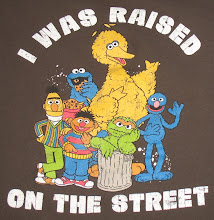This happened to be the first post I ever started on this now incredibly famous and infinitely sarcastic blog. It's been a draft since nearly a year ago, so I thought it time to finally put on some polish and set it on the world.
...
..
.
First, everyone who wants to be a writer, and wants their writing to matter, needs to read Emerson. Every last bit of it! Or, perhaps just "Self-Reliance" if one is lazy.
Secondly, how does Plato manage to still be relevant? Always relevant? He was relevant to Emerson. He's relevant to me. What the shit?
Thirds, relevance is the topic of the day (in snooty-patooty literary classes, at least, if you're lucky). How does one make their writing relevant? Please, feel free to answer that, as it's a good topic to explore.
My interest is less how, than what. What makes the topic or meaning of a story relevant? This is where Plato comes in, and why I finally pinpointed exactly why I love Philip K. Dick.
Plato has that ol' chained-in-a-cave analogy. Basically, we're all idiots, chained in a cave, pointed toward a wall. Behind us is a light and the real objects in their true forms, so appearing on the wall are only the shadows of truth. But it's all we know, so is effectively truth as we know it. At best we're ignorant, but at worst we're distracted from the possibility that what we're seeing may not be the entire truth and never think to look for anything more.
What's this got to do with writing? Well, this is why I love Philip K. Dick. He sucks you in with the shadow-show, but before you know it he's set the entire cave spinning and before you know it you're staring at truth. That's what I want to do with my writing. I want to spin the world around, so even the readers that refuse to look behind will be confronted with something more than just shadows on the wall.
And I believe all writers should ask themselves if they're dealing in truth, or shadows. Is what you're writing keeping the analogous man chained in the cave, ignorantly--though possibly contentedly--staring at the wall? Or, does what you write cause the reader to suspect something more may exist and dare to pull against the chains that have kept them from the truth?
Tuesday, January 18, 2011
Subscribe to:
Post Comments (Atom)

No comments:
Post a Comment